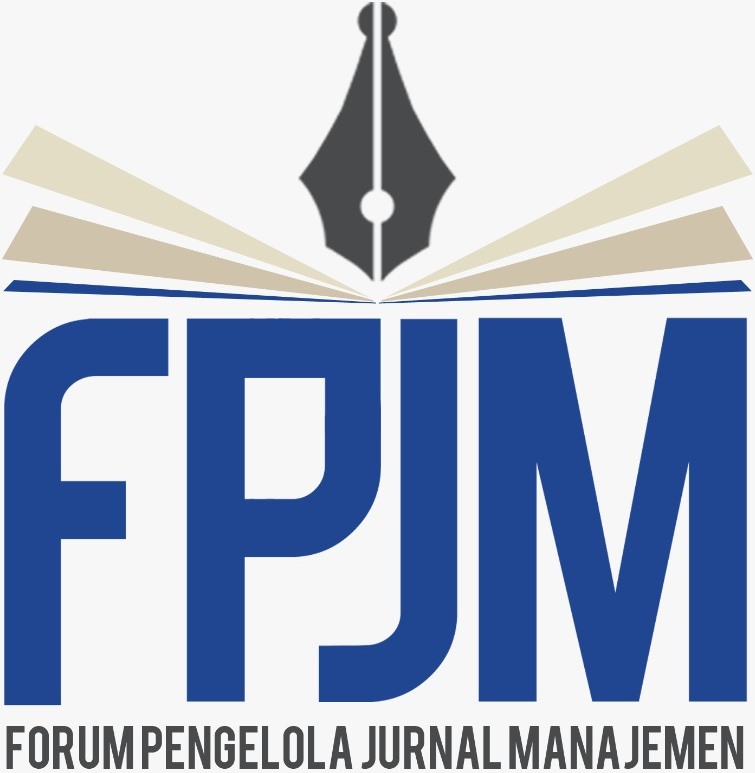STRATEGI PENGEMBANGAN BADAN USAHA MILIK (BUM) DESA MENUJU KAWASAN BISNIS PARIWISATA TERPADU DI DESA KARANG TENGAH
Abstract
Abstrak: Penelitian ini bertujuan untuk mengidentifikasi dan merumuskan strategi yang tepat bagi pengembangan BUM Desa dalam kerangka kawasan pariwisata terpadu di Desa Karang Tengah, Kecamatan Babakan Madang, Kabupaten Bogor. Metode yang digunakan adalah kualitatif deskriptif dengan tujuan memperoleh jawaban terhadap pertanyaan-pertanyaan yang menyangkut permasalahan dalam objek penelitian. Sumber data diperoleh dari data primer dan data sekunder yaitu dari literatur dan hasil Focus Group Discussion (FGD). Data diolah dan dikategorikan menggunakan NVivo. Hasil penelitian ini mengidentifikasi beberapa strategi yang dapat digunakan untuk mengembangkan kawasan wisata, salah satunya adalah dengan difersifikasi lini usaha dan pembangunan infrastruktur penunjang wisata. Strategi yang berbentuk strategi BMC (Business Model Canvas) diharapkan dapat menjadi rujukan bagi BUM Desa untuk meningkatkan daya saing usahanya serta menjadi percontohan bagi BUM Desa lain dengan unit usaha yang sejenis.
Abstract: This study aims to identify and formulate the right strategy for the development of BUM Desa within the framework of an integrated tourism area in Karang Tengah Village, Babakan Madang District, Bogor Regency. The method used is descriptive qualitative with the aim of obtaining answers to questions concerning the problems in the research object. Sources of data obtained from primary data and secondary data, namely the literature and the results of Focus Group Discussion (FGD). The data is processed and categorized using NVivo. The results of this study identify several strategies that can be used to develop tourist areas, one of which is to diversify business lines and develop tourism supporting infrastructure. The strategy in the form of a BMC (Business Model Canvas) strategy is expected to be a reference for BUM Desa to improve its business competitiveness and become a model for other BUM Desa with similar business units.
Keywords
References
(BPK), B. P. K. R. (2019). Ikhtisar Hasil Pemeriksaan Semester (IHPS) II Tahun 2018.
Cooper, DR, Schindler, P. (2006). Business Research Method. McGraw Hills.
Debarliev, S., & Mitrovska, S. (2016). Creating Distinctive Value Proposition in Tourism by Business Model Tools: Case Study of the City of Ohrid. European Scientific Journal, ESJ, 12(35), 82. https://doi.org/10.19044/esj.2016.v12n35p82
Gamble, John, Peteraf, Margaret; Thompson, A. (2016). Essential of Strategic Management, The Quest for Competitve Advantage 4th Edition (4th editio). McGraw Hills.
Hitt, M;Ireland, D & Hoskisson, R. (2016). Strategic Management Competitiveness and Globalization (12th editi). South Western College Publishing. Thomson Learning.
Kotler, P. (2017). Marketing Management (15th editi). Pearson Prentice Halls.
Malhotra, N. (2009). Marketing Research,An applied orientation (6th Editio). Pearson Education.
Mussry, Jacky; Hermawan, Michael; Taufik; Yuswohady; Hasan; Paul Patty; Soekarno, Suryo; Mulya, A. (2007). Markplus on Marketing, The Second Generation (Mark Plus inc., Ed.). Gramedia Pustaka Utama.
Osterwalder, A., Pigneur, Y., Smith, A., & Movement, T. (n.d.). Business Model Generation.
Pancar, G. (2017). Sekapur Sirih Komisaris dan Direktur.
Perhutani. (2019). Kembangkan Wisata Leuwihejo di Bogor, Perhutani jalin kerjasama dengan LMDH.
Porter, M. (2008). The Five Competitive Forces that Shape Strategy. Harvard Business Review 86 No 1.
Ramadhan, et. al. (2015). Identifikasi Akses Masyarakat Terhadap Pemanfaatan Sumberdaya Alam (Studi kasus di Desa Karang Tengah Kecamatan Babakan madang Kabupaten Bogor). Jurnal Nusa Sylva, 15(no 2 Desember), 27-36.
Tripomo, T. (2005). Manajemen Strategi. Rekayasa Sains.
Umar, A., Sasongko, A. H., Aguzman, G., & Sugiharto. (2018). Business model canvas as a solution for competing strategy of small business in Indonesia. International Journal of Entrepreneurship, 22(1), 4675.
DOI: 10.34203/jimfe.v7i1.2982
Refbacks
- There are currently no refbacks.
Copyright (c) 2021 JIMFE (Jurnal Ilmiah Manajemen Fakultas Ekonomi)

This work is licensed under a Creative Commons Attribution-NonCommercial-ShareAlike 4.0 International License.












